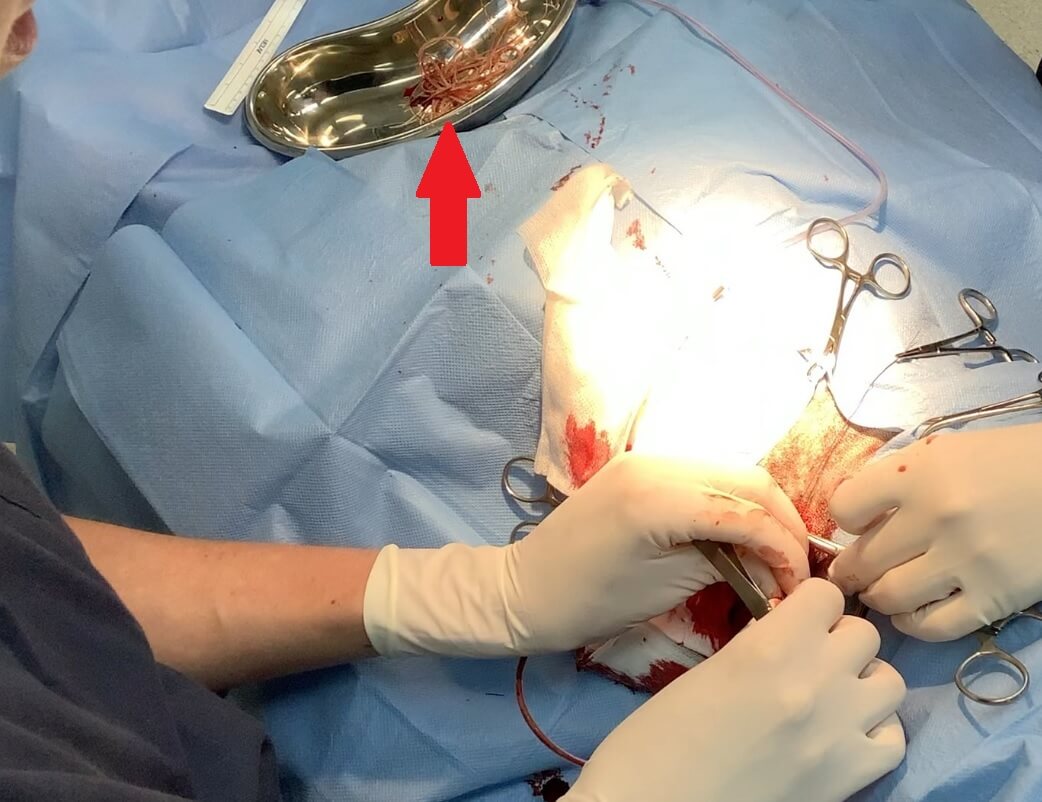Unfortunately, we are observing a large increase in dogs diagnosed with heartworm this year.
What is Heartworm?
As the name suggests, Heartworm is a large worm that lives in the blood vessels coming from the heart. It is spread by mosquitoes which inject small larvae into dogs. After circulation in the blood stream for a couple of months, they take up residence in the large blood vessels coming from the heart.
What Symptoms Does Heartworm Cause?
Heartworm is generally a long term disease. It gradually causes thickening of blood vessels and airways causing reduced exercise tolerance (get puffed quicker), coughing and weight loss. The damage is gradual (sort of like smoking) and therefore the earlier the Heartworm is picked up and treated, the less permanent the damage to the heart and lungs. In the early stages of infection, dogs may have no outward signs, however, damage is gradually being done to the heart and lung tissue.
There is also a syndrome called Caval Syndrome, which is rare but can cause rapid death.
Can Heartworm Be Treated?
Yes, there is a protocol to treat Heartworm, which involves treatment and rest over 4 months. The earlier the Heartworm is detected and treated, the better for the patient as there is less damage to the heart and lungs.
How Do I Know if My Dog Has Heartworm?
A simple blood test done at Alma Street Vet Hospital is all that is required.
How can I Prevent My Dog Getting Heartworm?
Prevention is by a yearly injection (Proheart SR-12) or monthly tablets.
Our recommendation is a yearly injection as this appears to be currently the most effective prevention and easiest option for protection.
We have diagnosed heartworm in dogs on monthly tablets, so we are recommending annual heartworm testing for dogs on monthly tablets.
Why Are We Observing More Cases?
Scientifically, we don’t know. 30 years ago, we diagnosed a lot of Heartworm, as the only prevention was daily tablets. With better preventatives, Heartworm cases were reduced to very low levels. It is unknown if lower levels of prevention have allowed higher case numbers in the community and therefore higher levels of spread by mosquitoes. We highly recommend heartworm testing (if not on yearly injection) and keeping dogs up to date with prevention.
Heartworm can be lethal to dogs. To keep your pet safe, we recommend regular prevention and testing in some pets to detect early cases. Prevention is much better than treatment



Contact Us Today!
Call us or use our online booking system to ensure your pet enjoys the most optimal health possible. We’d love to see you!
